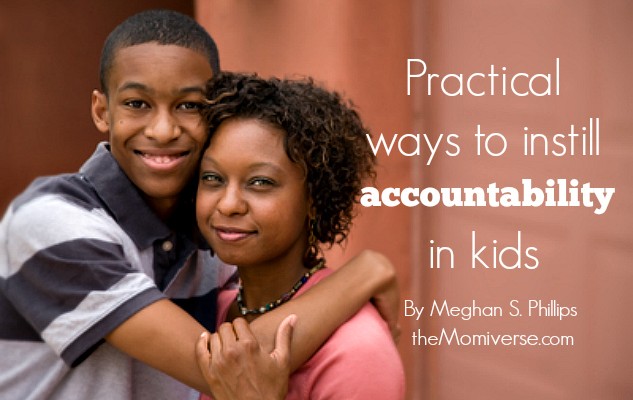
In my experience as a social worker, I often see parents who do not instill accountability in their kids. Being accountable is so much more than just taking responsibility. It shapes the adult you become. Is your child going to be the adult who does the right thing even when it’s uncomfortable? This doesn’t always come naturally. Responsibility and accountability need to be developed and instilled.
Webster defines accountability as:
The quality or state of being accountable; an obligation or willingness to accept responsibility or to account for one’s actions.
Accountability isn’t a trait you teach in a moment or an experience. It’s a characteristic you instill little by little every day. I have become very aware of just how many times in a day there are opportunities to do this with my own kids.
Model the proper behavior
One of the most effective ways of teaching our kids is modeling. Many times in any given day, I wish I hadn’t said or done something, or wished I hadn’t reacted in a certain way. These are perfect times to for us, as parents, to own our mishaps. I’ve overreacted and lost my cool a time or two (or three), and when I thought about it after the fact, most times, I was frustrated over something that had nothing to do with my kids. When my kids did something they shouldn’t have, or didn’t listen to me, I lost it. If and when that happens now, I own it. I apologize and tell them I was upset about something else and I shouldn’t have reacted that way. I don’t dismiss what they did or didn’t do, but I take responsibility for what I said or did.
Require your kids take ownership
In addition to modeling, parents can instill accountability by showing our kids how to take ownership when they make a mistake. There are so many lessons in this one act. First, no one is perfect. We all make mistakes. The key is to learn from our mistakes. That’s how we grow as people. Second, we can’t become who we are meant to be if we don’t take responsibility. You can do this as a parent by having your child apologize when he makes a mistake.
Make amends
An apology should include a statement of the act someone is sorry for. If your child is asked by his teacher to leave music class because he is disruptive, saying “Sorry” isn’t enough. It’s a great start, but the real accountability piece comes when you verbalize the mistake.
When your child apologizes to his teacher, it should be something like, “I’m sorry I was disruptive in your class today. It won’t happen again.” This can be done in person, or in a note your child writes. Yes, this is probably going to be uncomfortable for your child, but that is the lesson. Because it’s uncomfortable, the hope is your child will think twice before doing something similar next time. This how we learn from our mistakes.
To instill accountability we must make it part of our daily lives. It’s not a lesson learned in one brief moment. It’s learned through consistency. When your children grow into trustworthy, authentic, and accountable adults, they will thank you.
This Week's Articles Read, learn, live
-
 Summertime grilled vegetables
Summertime grilled vegetables
-
 5 Ways to make this summer full of unforgettable family fun
5 Ways to make this summer full of unforgettable family fun
-
 10 Reasons to take a family vacation in Puerto Vallarta
10 Reasons to take a family vacation in Puerto Vallarta
-
 5 Fun tips for spring cleaning with kids
5 Fun tips for spring cleaning with kids
-
 10 chick flicks with New Year’s Eve scenes
10 chick flicks with New Year’s Eve scenes
-
 The day after Christmas: 5 ways to handle the biggest downer of the year
The day after Christmas: 5 ways to handle the biggest downer of the year
{ 1 trackback }